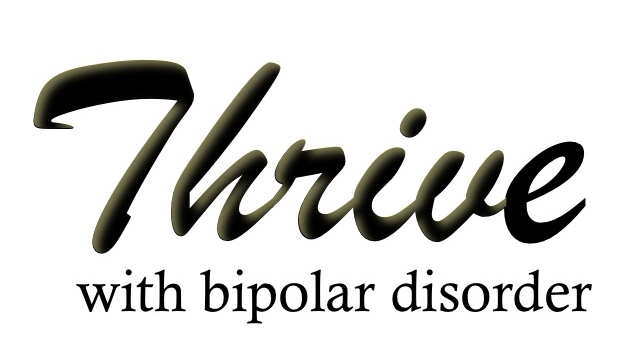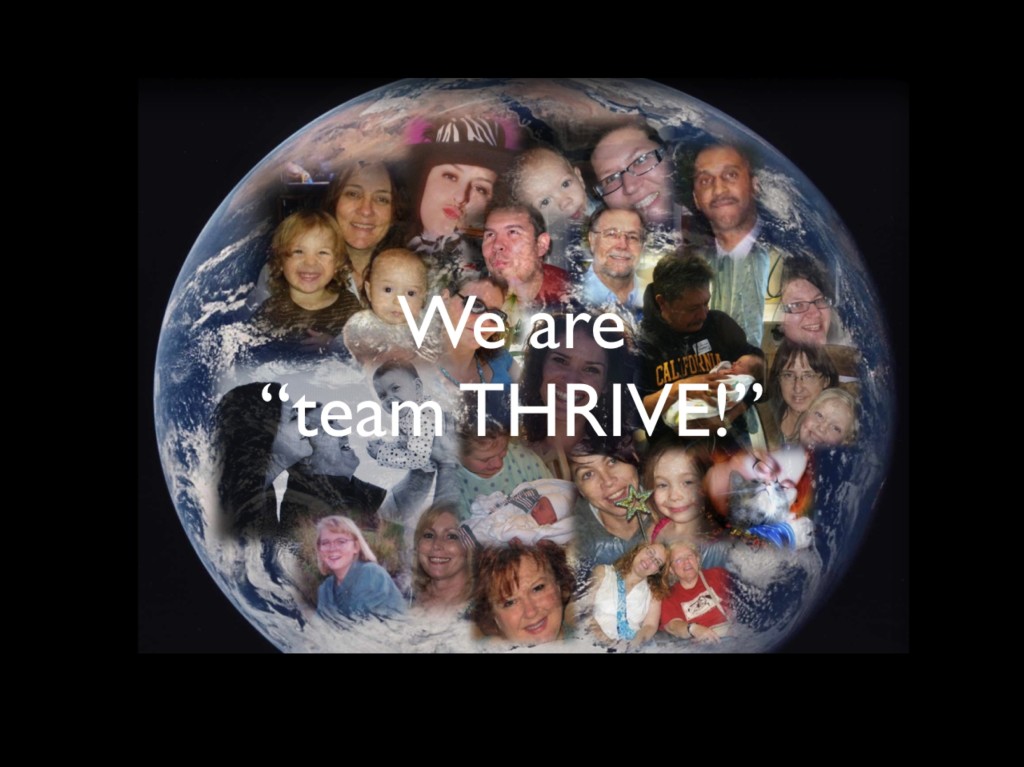Generalized Anxiety Disorder is characterized by:
EXCESSIVE anxiety and worry = fearful expectations.
In order to be diagnosed with Generalized Anxiety Disorder one must:
a.) experience excessive anxiety or worry for most of the time for at least 6 months.
b.) the worry is NOT based on a specific thing…it is based on multiple things for example: events, activities, work, relationships, people etc
c.) the person experiencing the worry finds it difficult to control the worry.
Symptoms of Generalized Anxiety are as follows:
Read More›Questions to Ask Yourself and Share to Help Others
To Submit your answers post your answers in the comment section of this blog.
Directions: This is for you. You don’t have to share it, but if you do, you will be helping a lot of people.
Only answer questions that you feel comfortable with. By no means do you need to answer all of the questions.
Influence
How do I respond to life circumstances that are beyond my influence?
What in my life can I influence?
What’s different between my responses to the things I have influence over and the things I don’t?
How do I currently respond to the things that bring me stress?
How would I like to respond to the things that bring me stress in my life?
What’s the first thing I would notice and do differently in my response?
What’s the second?
What’s the third?
If I responded to stress differently, what would be different in how I feel about myself, my relationships, and my ability to achieve my goals?
How does the way I respond to stress affect my experience of Bipolar Disorder?
Shame
What is something that I want to talk about, but haven’t because I feel I will be judged?
Who will judge me?
What will they think about me?
How will I talk to myself about me?
What if my thoughts about there thoughts are wrong?
What if they’re right?
How would I seek out support from anyone or ask for help with shame in the way?
How did this thing come to be shameful for me?
Who did I give permission to make me feel shameful?
What would I say to myself if I didn’t feel shame?
What’s different about these thoughts?
What do these thoughts want for me?
If they had hope, what would it be?
How does this relate to Bipolar Disorder?
How might your responses to stress affect manic and depressive episodes?
How might shame promote mania and depression?
If I am ashamed to live with Bipolar Disorder…
how will I take medication that could help me?
how will I prevent episodes
that cause me to feel shameful to begin with?
how will I explain an addiction to episodes?
will I cover it up with alcohol & drugs instead and suffer more?
how will I get medical help?
how will I keep my job?
how will I keep my friends?
who will help me, if no one knows?
how will I keep it from getting worse?
You don’t have to be ashamed. You’re not alone.
In spite of change being the only constant in life it is very common that people seek out stability, predictability and the need for things to stay the same.
When things don’t stay the same, we panic, we’re overwhelmed, we’re anxious, we have episodes of depression, mania…etc. Trying to stay the same leads to being crazy, nuts and mentally ill.
There is humor in our need for constant stability and predictability in a constantly changing world, but its very hard to laugh at ourselves when we’re overwhelmed by the terror of change.
Anytime we get upset with someone over anything, we are resisting change.
Here are ideas to overcome our fear of change:
Step 1: Notice Ways You Resist Change.
I am upset about _____________.
I am defending and protecting myself from ______________.
I don’t want to change _______________.
I’m scared of ______________.
I refuse to see ______________.
I don’t want to see it because if I were to see it then I’d have to do _________.
I really don’t want to do __________ because then I’d have more ___________.
I don’t want more __________ because having more __________ says about me that I’m ____________.
If I’m ___________ then I feel ____________.
If I feel ____________ then _____________ will happen to me.
Step 2: Acceptance of the Outcome of Resistance.
The world does not come to an end if I feel ______________.
Nothing changes if I fail at _______________.
If I have more ________________ I’ll be just fine.
The consequences of not changing are __________________.
Step 3: Humor About Resistance
It’s pretty funny that I’ve resisted ______________ for so long.
I made _____________ so scary when its really only ______________.
I don’t like ______________ because then I have to do ________________ and feel ____________.
The reality is feeling ______________ and doing _______________ is actually good.
Step 4: Finding Joy in Change
I’m looking forward to _______________.
What I see for myself is a better quality of life with ________________.
My relationships will be more ___________________.
My work will be more ____________________.
My fun/relaxing time will be more ________________.
I’ll get to be/do _________________.
Step 5: Putting Change Into Action
The next best step in creating this change is ________________.
I will do this step by this time TODAY _________________.
Other steps I will take towards this change are ____________ ____________ ___________.
I will do them by this time _______________.
It is so important to both find your joy and commit to when you will take action steps toward the change you are actively participating in your life. By finding your joy and taking action, you overcome fear.
This post addresses a very hard obstacle in life when living with bipolar disorder and for all people…DATING and RELATIONSHIPS.
Medication does not help with the challenges caused by relationships.
I’ll share my story…its the “rabbi” in me.
This story applies to EVERYONE…with or without bipolar disorder.
______________________________________________
For me, the hardest part of having bipolar disorder that medication does not help with AT ALL is with dating and relationships.
Dating and relationships are HARD for everybody…regardless of having bipolar disorder or not.
Dating is a whole lot of fun for me as long as I’m not emotionally attached to anyone…then its easy and playful. I’m really carefree…which makes me attractive to men. (If I’m carefree it’s because I’m not that into a guy, yet.)
Once I like someone I’m dating, that’s when it gets really hard.
_______________________________________________
Sharing with men that I have bipolar disorder has not been an issue for me because I share it with confidence and show them all I’ve done. I let them Google me; it makes me proud. However, it is really hard for a lot of people and we will get to explore it. There is no one right way of how.
Progress I have made is that I no longer share that I’m bipolar with men in the first phone call or first date. (I used to do that when I was younger to save myself from rejection. Rejection from a guy I’m not interested in all that much doesn’t hurt me nearly as much as rejection from a guy I really like.)
______________________________________________
I think I’m pretty normal when it comes to struggling with dating. None of us are good at the rules, otherwise there wouldn’t be rules and books etc. Building a relationship gradually over time is hard for everyone…if it were easy, the divorce rate wouldn’t be so high.
_______________________________________________
But back to my story of how bipolar disorder makes it even harder.
Why? Because when I experience chemistry, attraction, desire, fantasy, hope…all the stuff that captivates my interest…everything I know from being a therapist and reading all the books and observing relationships goes out the window.
I am immediately up against one of my “arch nemesis”…impulsivity.
Impulsivity has a really hard time being patient and giving things time. It is as though patience is blasphemous. If I don’t win the battle with this arch nemesis, I lose the interest of the guy I like.
One way hands down to lose the battle is by not having a filter and allowing impulsivity to run wild.
People say, “If the guy is right, it won’t matter what you say.”
I don’t think that’s true.
When the foundation (of a relationship) is being constructed one block at a time, it’s not reasonable to put in a fireplace where there is no wall or a bed where there is no floor, or a toilet where there is no plumbing. I’ve done that so many times because I couldn’t tolerate the discomfort that comes from uncertainty and having a bunch of building materials instead of having a “home” with someone. AND still do it…because that’s being human. (This is a human problem…being bipolar just intensifies it.)
The KEY for me is that when the fireplace falls down or the bed is washed away by the toilet etc…that I don’t freak out…that I remember the absence of the foundation AND that all we’ve got are building blocks of a relationship. We both have to agree on how to build it…and if we don’t, we don’t build a “home” (relationship) together.
_____________________________________________
So not only do I have a battle with impulsivity…AND stop trying to decorate a non-existant home…I also have to find ways to disengage from ruminating thoughts about what that home = relationship should be like…because right now (in the early stages of dating) all we’ve got are bricks and a shovel.
That sets the bar for myself very high. Its basically demanding me to not be bipolar.
Bipolar disorder embraces ruminating thoughts. It’s how we persist towards goals.
________________________________________________
BUT WAIT. The bar gets even higher with dating.
Another “arch nemesis” enters the game…EMOTIONAL ROLLER-COASTERS.
When I like someone, the mere act of liking him produces emotion. (The emotion is what is decorating the non-existant home.)
EMOTION is a pretty stable or consistent force. It is very predictable and easy to manage when I’m NOT experiencing it.
But when I’m experiencing it…everything I know about emotion goes out the window.
Instead, the highs feel so good and I just want to keep feeling them and actually believe I will (It’s believing the home is real)…but that never happens (because the home is a fantasy). So when the lows come (the day after the high), it’s like falling on my face on a pile of bricks and I’m disappointed (but that’s what’s real…all we’ve got are the building tools of a home). I immediately pull away and guard myself with strong negative emotion that says, “He’s not into me” because I fear rejection. (Which is not true because at least he may still be interested in exploring our building tools.)
My natural impulsive instinct is to pull the building tools away because it doesn’t feel like a home. (And it shouldn’t yet.)
EVEN THOUGH I KNOW BETTER. THIS IS JUST HOW EMOTION WORKS. It’s a wave. It goes UP and then comes DOWN. It EXPANDS and CONTRACTS just like breathing.
I become ignorant and forget everything I know about EMOTION and building a relationship.
_____________________________________________
So why do I give credit to bipolar disorder?
Because bipolar disorder takes this normal process and intensifies it ridiculously. The medication doesn’t help.
What works for me is remembering what I know and using that knowledge to stop making the same mistakes over and over again.
Writing this down was very useful for me. I hope it’s useful to you. It applies to more in life than dating and relationships.
I didn’t have self-assurance and confidence until I had no choice.
I’ve been asked often to share about building self-assurance and confidence while having bipolar disorder as a constant threat in my life.
I used to talk about self-assurance and confidence in a therapisty way because I hadn’t built the self-assurance yet.
Self-assurance didn’t come from going to UC Berkeley or getting a Masters Degree. When I graduated from all of my institutions I still didn’t believe I could stand on my own two feet.
When I finally earned my license as a therapist and began working in my field and earning a decent income…I still did not have self-assurance. I had confidence that I could earn a living and keep my job, but I didn’t have self-assurance (faith in my own abilities and character). I was still living with my parents and had a safety net. I was very comfortable in their nest even though I could afford to go out on my own. So in spite of helping everyone else…I still wasn’t there yet…I still didn’t believe in myself and my own abilities because I always had the fear of bipolar disorder.
The fear of bipolar disorder is the fear that everything I’ve worked so hard for could be lost very easily by an episode.
The fear of bipolar disorder is the fear that kept me from trusting myself and believing in my own ability to be independent.
The fear of bipolar disorder has been my crutch since I was 16 years old. I did not know how to not be afraid of it. I gave that fear the power to destroy me. I’ve spent most of my life fearing bipolar disorder on a core level.
That crutch got knocked out from under me when leukemia came into my family’s life. Within a moment the safety net that I relied on…that my parents had created for me…was gone. The security was gone, instantly.
Nothing changed in my family. We didn’t lose our home. My dad didn’t die. Everything stayed the same…but my entire belief system of security and safety crumbled.
It was similar to the destruction that I experienced after my first full-blown manic and depressive episode that destroyed everything I knew about myself…BUT, THERE WAS A KEY DIFFERENCE.
When my dad got sick and the imaginary safety net of always having my parents crumbled…what arose from within me was my own character and my own faith in my ability.
It was there all along (or at least for a really long time) and I didn’t know it because I had always been leaning on the crutch of safety…I was afraid to trust. I was the bird that had perfectly good wings, yet was afraid to fly in case I fell.
When my dad got sick…instantaneously, from the core within me I immediately flew. I just took off flying…I don’t know how I did it. My suspicion is that it was all the years I invested into myself.
I went through a bit of mania (multiple times controlled by medication), I went through plenty of depression (that I had to deal with daily)…yet I was still flying. In spite of episodes I still went to work each day and I immediately moved out of my parents home. I left the nest because I had to…from deep down in my core, I had to leave the nest even though at times it would have been beneficial if I stayed. (Don’t worry, I still helped out plenty.)
This is when self-assurance began to really build for me. I faced the episodes I feared would destroy me…and they didn’t…I kept moving forward. As long as I continued to move forward (even though they made it harder and slowed me down at times) I did just fine on my own two feet.
Self-assurance became my rock when I began sailing my boat…we’ve all heard about that in my prior story.
The key message I want you share is that I didn’t have self-assurance as a person living with bipolar disorder until there was no choice for me to hold onto the crutch anymore. I couldn’t fly and hold onto the crutch.
Episodes happened and are going to continue to happen in my life and as long as I take really good care of myself by sailing and working towards my goals and being responsible with my medication…and continuing to do it all in spite of how I feel…I do really well.
I really hope this is useful and I encourage you to share your stories. To learn how, go to: https://www.facebook.com/teamTHRIVE and find out about joining a private community that is being built.
If this is useful, let me know. Thanks in advance. 🙂
This is my own story of overcoming fear of failure in life…the boat is simply a metaphor.
I was four years old when I made the decision with promise that I was going to live on a boat. That decision was as constant as the northern star (everything rotated around it and it never changed position.)
So my whole life I’ve turned everything away that got in the way of me living on a boat.
The one really KEY thing I didn’t turn towards was learning how to sail…how to be Captain.
I was my dad’s #1 first-mate, but I was scared shitless of being Captain. I just expected that by the time I bought my boat, I’d be married and he’d be captain.
When I became a licensed psychotherapist and began earning a decent income…most of my money was saved for the boat that I didn’t intend to buy until I was married. But I never told people I was waiting for the married part and that I was so incredibly scared of being Captain.
No one knew how scared I was to be a Captain. No one knew to what extent I did not believe in myself and my abilities…even after 34 years as first-mate…I had NO confidence whatsoever that I would ever be Captain. It was my little BIG secret. I think the only person I would’ve told was my husband. I expected that as we were dating he’d be the one to truly learn how to sail and I’d be his first-mate.
Life doesn’t happen as planned. This time last year, my dad was living at Cedar Sinai Hospital being treated for Acute Lymphoblastic Leukemia AND he was DETERMINED AND PERSISTENT that it was time for me to buy my boat.
He had no clue how scared I was AND no part of me was ready to be Captain. I wanted him to be Captain (since I wasn’t married). But Leukemia took that dream away too. Even though no part of me was ready to buy a boat, I bought a beautiful boat.
The whole process made me a little more manic than usual. When it sunk in that my dad was really sick, way too sick to be Captain…that I might lose my dad, he might die…I sunk into a depression for several months…yet I was joyous at the same time because I was living my dream of living on a boat. I was manic-ly depressed.
From the moment I bought my boat I lived on her. But I didn’t take her out of the slip. She became the best condo ever. We weren’t going to go anywhere. I had no clue as to what I was doing whatsoever AND I had no intention of changing that.
I was afraid of EVERYTHING. I was afraid of messing up everything and breaking stuff. I was afraid of sinking my home, damaging my home. I had no faith in myself…no confidence whatsoever that I was capable of being a Captain of my boat…or the Captain of my life (that fear was caused by Bipolar Disorder).
Whenever I thought about sailing, I said to myself, “Hell no! I’m not sailing my boat. That’s stupid! That’s a horrible idea! That’s just asking to lose everything I’ve worked so hard for. I’ll wait until I find “the guy” or even “a guy”.”
I resisted sailing with everything I had in me. I had every excuse in the book. I told myself and everyone else that I was perfectly content with my life tied to the dock. I went out to sea on other people’s boats and got overwhelmed easily anytime anyone tried to teach me anything on my boat.
A good friend of mine saw right through me. He said to me, “You’re afraid of fucking up.”…”We’re taking your boat sailing. You are going to be at the helm the entire time and running all of your systems. And you don’t get to leave the helm until you know how to do EVERYTHING. I’ll coach you, but you’re doing ALL of the work.”
I had no choice but to go along with it.
I hated every moment of it. It was hell. It was scary. Nothing was fun about it at all…but I did it anyways.
I did discover that by being forced to do things, I actually did know how to do them. I just wanted someone else to be doing them.
Certain things came intuitively and things like docking scared the crap out of me and I never thought I would be able to do it.
But I learned that even when I failed, it wasn’t the worst thing in the world. When I failed at docking, I didn’t sink my boat or do damage to anyone. I eventually got the boat tied up in the slip.
BUT I still did NOT want to be Captain. I wanted to go dance on my bow (the front of the boat instead). I didn’t want the responsibility.
After a few sails, my friend saw my resistance and stopped sailing with me. He gave up on me. I felt like a failure. I failed. I was a failure. I stopped sailing.
The first week of September, a family friend died who was in the hospital when my dad was in the hospital. This friend said to me, “Honey Hush” every time I gave him an excuse for not sailing.
After his funeral, I took my boat out sailing.
I made a ton of mistakes and I broke things. I faced every basic human fear out there on the water. And I did it. Everything was and is just fine.
So I kept sailing her over and over again. I single-hand sail her every week.
I now am the Captain of my boat, “Living My Dream”. Becoming her Captain one sail at a time empowered me to become Captain of my life (in spite of Bipolar Disorder.)
I make mistakes all the time. Things break or breakdown. I don’t know how to fix them. But people help and there always is a fix (eventually)…and more things will break and I’ll mess up, and its okay as long as I’m being safe and paying attention. I have the confidence to know that no matter what happens things will be just fine.
In a nutshell, that’s the story of how I overcame my fear of failure became Captain of “Living My Dream”.
Mental illness confuses and distorts our ability to think, feel and respond to present circumstances.
Thinking is distorted and confused through the process of ruminating thoughts, intense thoughts, rapid thoughts and thoughts getting jumbled or lost.
Distorted and confused thoughts often and easily lead to feelings and responses that are impulsive, irrational and unpredictable.
So the question I am often asked is, “Where do you intervene?”
Once you’ve already responded to confused and distorted thoughts, you’re in the zone of clean-up work. Often times, you’re cleaning up the mess you’ve made with your actions. So this is not the most efficient time to intervene, but it is often where people do their intervention work either on their own or in therapy.
I believe the best place to intervene is with the thought and feeling. In fact, I try to intervene in the space that exists between having the thought and responding to it with more thoughts.
By no means is it easy to do. Its achievable a small percentage for people on their own. It is much more doable with the support of a coach and community.
Here’s a common example that people go through on a daily basis:
“Does __insert person’s name __ like what I just said?”
Instantly our mind goes to work to answer this question. If it does not have an immediate answer based on a person’s response, our minds create an entire world of assumptions.
The process of trying to figure out something without having enough information can go on for days or longer.
The key to saving ourselves from this stress is to immediately answer the original question with an answer that does not allow our imaginations to run wild with assumptions.
My favorite answer to this question is, “I don’t know.”
The words “I don’t know.” immediately stop the imagination in its tracks and prevent assumptions from being made. My mind can’t run wild when I use these three words. Instead I pause. I don’t have a strong emotional response. I don’t have feelings of judgment or rejection or fear or joy. I am in a state of peace and quiet within myself when I use these three words.
From the state of peace, I am then able to ask myself:
1.) How important is it to me and our relationship to know?
If it is truly important then I will simply ask the person or people involved in order to get clarity.
2.) If I’m uncomfortable asking someone straightforwardly, I ask myself: “What evidence supports my need being met?”
This actually gives me the opportunity to explore what my need is and all the ways my need was met, versus feeding into my fears.
3.) “With what I know, how do I choose to respond?”
This question empowers me. I get to choose to stay the course or go in a completely new direction.
The words “I don’t know.” are a pause that lasts long enough to prevent myself from having confused or distorted thoughts. It lets me pause long enough to not have an immediate emotional response. I get to pause before I make assumptions.
In my opinion, this is the most effective way to intervene when living with mental illness.
If your loved one is like me, during the worst of depression they want as much nurture and time with you as possible because the experience of depression is so incredibly scary.
During my depression I was not able to think, nor feel. I no longer felt like a human being. I needed the support of my family, to just be there with me…in the room with me or touching me or lying beside me just so I could feel alive.
This was great for me, but it wasn’t good for my family at all. Here’s what I learned my family needed.
Boundaries
My family needed to set firm boundaries with me for time that they would not spend with me during the worst of my depression.
For instance, my mother set the boundary that she needs her mornings to enjoy her breakfast, doing crossword puzzles and to just relax. She also needed time in the evenings to decompress. And all day Wednesday was her day to be with friends. She is retired and had more time to spend with me.
My sister needed boundaries. She worked full time. She needed time daily after work to decompress, but would spend time with me before bed-time to practice Tai Chi with me with the hope that it would help me sleep.
With these boundaries, I began to improve because it forced me to utilize my own strength and tools. And it helped me to recognize when it was time to get psychiatric help.
Without boundaries, I would have been very comfortable staying in my depression and not getting psychiatric help for even longer with all the nurture I received.
I highly encouraged parents and loved ones to figure out their boundaries and set them in a way that says, “I LOVE you. Nevertheless, I need to take care of myself first in order to be there for you.”















